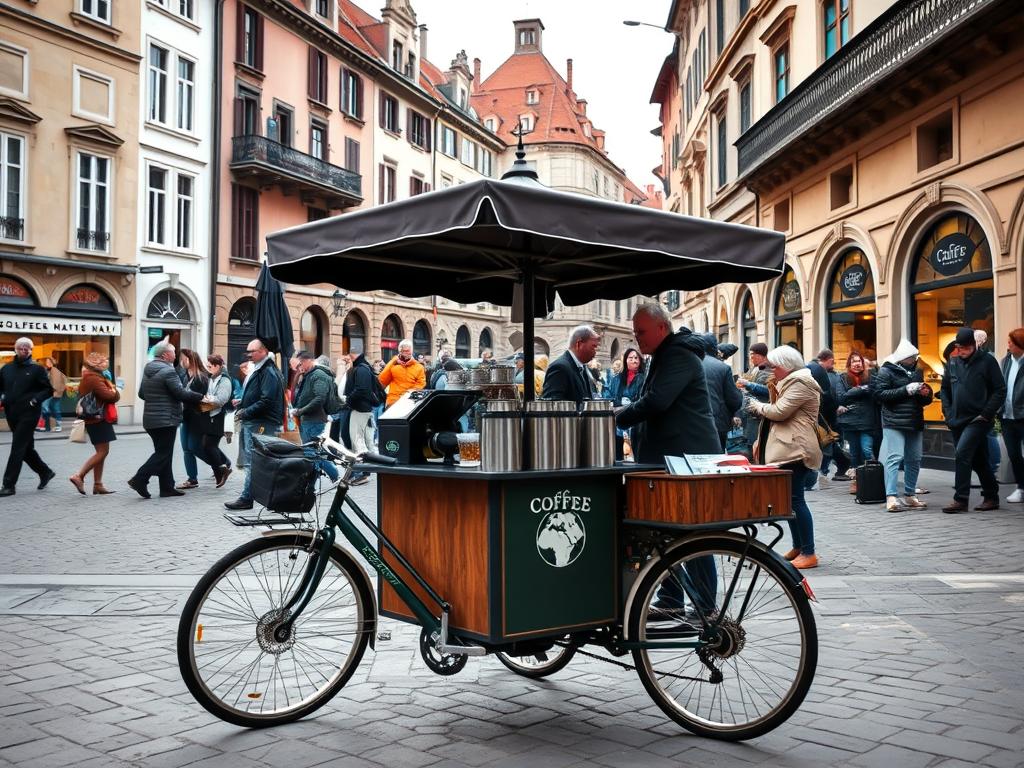Europe’s diverse economies, supportive startup ecosystems, and access to a market of over 440 million consumers make it an ideal launchpad for entrepreneurs with limited capital. From the innovation hubs of Berlin and Amsterdam to the emerging entrepreneurial scenes in Lisbon and Tallinn, low-cost business opportunities abound across the continent. This guide explores 15 affordable business ideas that can be started with minimal investment while leveraging Europe’s unique advantages.
Whether you’re a local resident or considering relocating to tap into Europe’s business-friendly environment, these opportunities offer realistic pathways to entrepreneurship without requiring substantial startup capital. We’ll cover estimated costs, ideal locations, and practical tips to help you navigate the European business landscape.
Europe’s Startup-Friendly Environment
Europe offers a unique combination of factors that make it particularly attractive for low-cost business ventures. The continent’s strong infrastructure, digital connectivity, and government support programs create an environment where entrepreneurs can thrive without massive initial investments.
Major European startup hubs and their specializations
Several factors make Europe ideal for low-cost business opportunities:
- Government Incentives: Many European countries offer tax breaks, grants, and subsidies specifically designed for small businesses and startups.
- Incubator Networks: Cities like Berlin, Amsterdam, and Lisbon host numerous business incubators that provide affordable workspace, mentorship, and networking opportunities.
- Digital Infrastructure: Europe’s strong digital connectivity enables entrepreneurs to reach customers across the continent with minimal physical presence.
- Skilled Workforce: Access to a well-educated talent pool, often at more competitive rates than in the US.
- Cross-Border Opportunities: EU membership facilitates expansion across multiple countries with reduced regulatory barriers.
1. Mobile Food and Beverage Businesses
Food and beverage businesses with mobility offer low entry costs while maximizing location flexibility. These ventures can follow customer traffic patterns and test different markets without committing to expensive fixed locations.
Mobile Coffee Bike (€3,000-€7,000 startup)
Coffee bikes combine two European passions: cycling and quality coffee. These mobile cafés require minimal startup costs while allowing entrepreneurs to serve high-margin products in high-traffic areas without paying rent. The concept works particularly well in bike-friendly cities with outdoor tourism.
Best Locations
- Amsterdam, Netherlands (bike-friendly infrastructure)
- Copenhagen, Denmark (strong coffee culture)
- Berlin, Germany (large public spaces and events)
- Barcelona, Spain (year-round tourism)
Startup Costs Breakdown
- Custom coffee bike: €2,000-€5,000
- Espresso equipment: €500-€1,000
- Initial inventory: €300-€500
- Permits and licenses: €200-€500
Food Truck Lite (€5,000-€10,000)
A scaled-down version of traditional food trucks, these operations focus on a limited menu of 2-3 signature items that can be prepared with minimal equipment. By specializing in a single cuisine or dish, entrepreneurs can keep costs low while building a recognizable brand.
Best Locations
- Lisbon, Portugal (growing street food scene)
- Prague, Czech Republic (tourism and affordability)
- Budapest, Hungary (vibrant night economy)
- Milan, Italy (food appreciation culture)
Startup Costs Breakdown
- Converted small van or trailer: €3,000-€7,000
- Basic cooking equipment: €1,000-€2,000
- Initial inventory: €500-€800
- Permits and health certificates: €500-€1,200
2. Digital Services with European Focus
Digital businesses offer some of the lowest startup costs while providing access to clients across Europe and beyond. By focusing on European-specific needs, entrepreneurs can differentiate themselves from global competition.

EU Compliance Consulting (€500-€2,000 startup)
With GDPR, ePrivacy, and other EU-specific regulations, businesses worldwide need help navigating European compliance requirements. This consulting business requires primarily knowledge investment and can be operated entirely online.
Best Locations
- Brussels, Belgium (proximity to EU institutions)
- Dublin, Ireland (tech hub with EU access)
- Tallinn, Estonia (digital governance leadership)
- Remote (can be operated from anywhere in Europe)
Startup Costs Breakdown
- Website and online presence: €300-€800
- Professional certifications: €0-€1,000
- Legal templates and resources: €200-€500
- Marketing materials: €0-€300
Localization Services (€300-€1,500 startup)
Europe’s multilingual market creates constant demand for translation and cultural adaptation services. Beyond simple translation, localization helps businesses adapt their content, marketing, and products to specific European markets.
Best Locations
- Barcelona, Spain (multilingual talent pool)
- Berlin, Germany (international startup scene)
- Warsaw, Poland (competitive rates for talent)
- Remote (can be operated from anywhere)
Startup Costs Breakdown
- Website and portfolio: €200-€600
- Translation software: €0-€500
- Professional memberships: €100-€300
- Marketing: €0-€200
3. Sustainable and Eco-Friendly Ventures
Europe leads globally in environmental consciousness, creating opportunities for businesses that align with sustainable values. These ventures benefit from growing consumer preference for eco-friendly products and services.

Upcycled Furniture Business (€1,000-€3,000 startup)
Transforming discarded furniture into stylish, functional pieces appeals to Europe’s growing sustainable consumer base. This business combines craftsmanship with environmental consciousness while requiring minimal initial investment.
Best Locations
- Copenhagen, Denmark (design appreciation)
- Berlin, Germany (alternative design scene)
- Gothenburg, Sweden (sustainability focus)
- Lyon, France (appreciation for craftsmanship)
Startup Costs Breakdown
- Basic tools and equipment: €500-€1,500
- Workshop space (shared/part-time): €200-€600
- Initial materials and inventory: €300-€800
- Online presence and marketing: €0-€300
Zero-Waste Store (€5,000-€10,000 startup)
Zero-waste shops allow customers to purchase food, household products, and personal care items without packaging waste. These stores align with European environmental policies while meeting growing consumer demand for sustainable shopping options.
Best Locations
- Ljubljana, Slovenia (zero-waste pioneer city)
- Helsinki, Finland (environmental consciousness)
- Vienna, Austria (urban sustainability focus)
- Bordeaux, France (progressive consumer base)
Startup Costs Breakdown
- Small retail space: €2,000-€5,000 (deposit and first months)
- Dispensers and storage solutions: €1,500-€3,000
- Initial inventory: €1,000-€2,000
- Permits and licenses: €500-€1,000
4. Specialized Tourism Experiences
Europe’s tourism industry offers opportunities for niche experiences that require more creativity than capital. By focusing on unique, authentic experiences, entrepreneurs can enter the tourism market without competing with established operators.
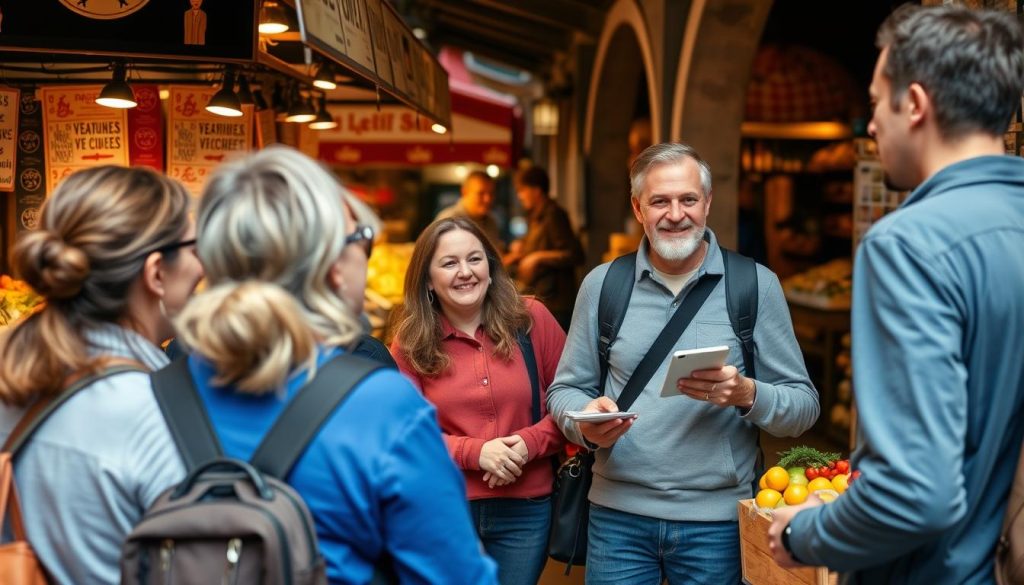
Microlocal Food Tours (€500-€2,000 startup)
Instead of generic city tours, these highly specialized food experiences focus on specific neighborhoods, ingredients, or culinary traditions. By keeping groups small and experiences authentic, entrepreneurs can create premium offerings with minimal overhead.
Best Locations
- San Sebastián, Spain (culinary reputation)
- Bologna, Italy (food heritage)
- Lyon, France (gastronomic capital)
- Thessaloniki, Greece (diverse food culture)
Startup Costs Breakdown
- Website and booking system: €300-€800
- Local partnerships and tastings: €200-€500
- Permits and insurance: €0-€500
- Marketing materials: €0-€200
Artisan Workshop Experiences (€1,000-€3,000 startup)
Connecting tourists with local artisans for hands-on workshops creates memorable experiences while supporting traditional crafts. These businesses can operate with flexible schedules and minimal fixed costs.
Best Locations
- Florence, Italy (artistic heritage)
- Porto, Portugal (traditional crafts)
- Kraków, Poland (cultural tourism)
- Ghent, Belgium (creative city)
Startup Costs Breakdown
- Workshop materials and tools: €500-€1,500
- Artisan partnerships: €0-€500
- Online booking platform: €300-€800
- Marketing and photography: €200-€500
5. Tech-Enabled Local Services
Combining digital platforms with local service delivery creates scalable businesses with low initial investment. These hybrid models leverage technology to efficiently connect service providers with customers.
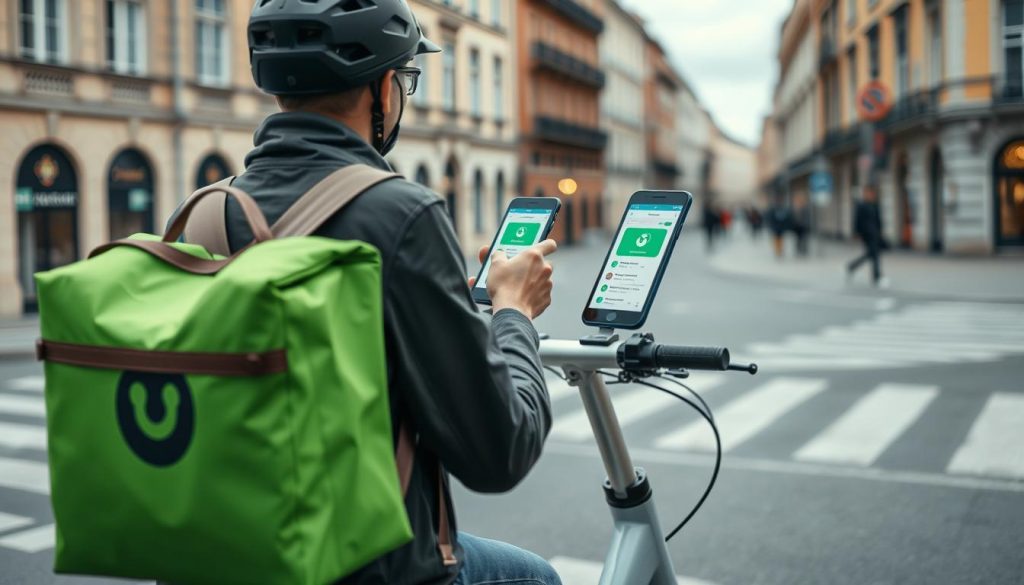
Hyperlocal Delivery Platform (€2,000-€5,000 startup)
Focusing on neighborhoods rather than entire cities, these platforms connect local shops with nearby customers for quick deliveries. By starting in a single neighborhood, entrepreneurs can establish proof of concept before expanding.
Best Locations
- Madrid, Spain (dense urban neighborhoods)
- Amsterdam, Netherlands (bike-friendly infrastructure)
- Milan, Italy (fashion and specialty retail)
- Munich, Germany (affluent consumer base)
Startup Costs Breakdown
- Basic app or platform development: €1,000-€3,000
- Delivery equipment: €300-€800
- Marketing to local businesses: €500-€1,000
- Insurance and legal: €200-€500
Virtual Assistant Collective (€500-€2,000 startup)
Pooling European virtual assistants with specialized skills (languages, technical knowledge, industry expertise) creates a premium service for businesses needing European market support.
Best Locations
- Lisbon, Portugal (growing digital nomad hub)
- Tallinn, Estonia (digital business environment)
- Sofia, Bulgaria (competitive talent costs)
- Remote (can operate from anywhere)
Startup Costs Breakdown
- Website and service platform: €300-€1,000
- Digital tools and subscriptions: €100-€500
- Legal templates and contracts: €100-€300
- Marketing and networking: €0-€200
6. Education and Training Businesses
Europe’s emphasis on lifelong learning and professional development creates opportunities for specialized education businesses. These ventures can start with minimal infrastructure while leveraging the founder’s expertise.
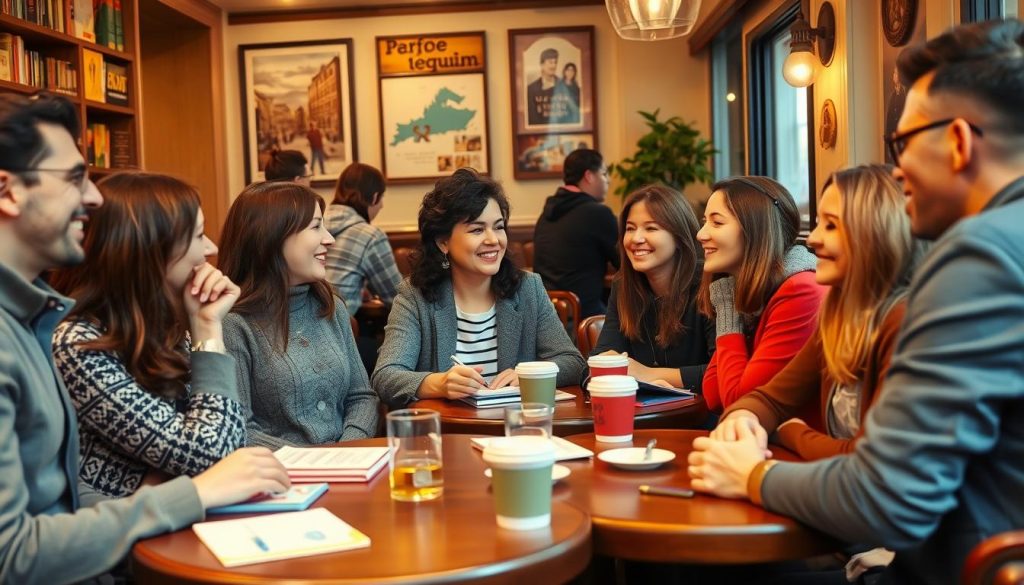
Language Exchange Platform (€1,000-€3,000 startup)
Creating organized language exchange events and communities helps Europeans practice languages while building cultural connections. This business can start with in-person events before developing digital components.
Best Locations
- Barcelona, Spain (international population)
- Berlin, Germany (expat community)
- Brussels, Belgium (multilingual environment)
- Budapest, Hungary (language learning hub)
Startup Costs Breakdown
- Event space partnerships: €0-€500
- Website and community platform: €500-€1,500
- Learning materials and resources: €200-€500
- Marketing and community building: €300-€500
Specialized Skills Workshops (€500-€2,000 startup)
Offering workshops in niche skills that align with European market demands provides value while requiring minimal infrastructure. These can range from technical skills to traditional crafts with contemporary applications.
Best Locations
- Copenhagen, Denmark (design focus)
- Vienna, Austria (traditional crafts)
- Helsinki, Finland (tech education)
- Lisbon, Portugal (creative industries)
Startup Costs Breakdown
- Workshop materials and equipment: €300-€1,000
- Venue partnerships: €0-€500
- Curriculum development: €0-€200
- Marketing and participant recruitment: €200-€500
7. Niche Marketplace Platforms
Creating specialized marketplaces that connect buyers and sellers in underserved niches can be started with minimal investment while offering significant scaling potential.

European Artisan Marketplace (€2,000-€5,000 startup)
Connecting traditional European artisans with global consumers helps preserve crafts while creating a unique e-commerce opportunity. This platform can start with a small selection of verified artisans before expanding.
Best Locations
- Lisbon, Portugal (traditional crafts revival)
- Florence, Italy (artisanal heritage)
- Kraków, Poland (craft traditions)
- Remote (can operate from anywhere)
Startup Costs Breakdown
- E-commerce platform development: €1,500-€3,000
- Artisan onboarding and photography: €300-€1,000
- Payment processing setup: €100-€300
- Marketing and brand development: €500-€1,000
Peer-to-Peer Skill Exchange (€1,000-€3,000 startup)
Creating a platform where Europeans can exchange skills and knowledge creates value while requiring minimal inventory or physical infrastructure.
Best Locations
- Berlin, Germany (collaborative economy hub)
- Amsterdam, Netherlands (sharing economy adoption)
- Barcelona, Spain (community initiatives)
- Remote (can operate from anywhere)
Startup Costs Breakdown
- Platform development: €800-€2,000
- User verification system: €200-€500
- Community management tools: €0-€300
- Marketing and user acquisition: €0-€500
8. Home-Based Production Businesses
Production businesses that can operate from home offer low startup costs while allowing entrepreneurs to create tangible products with European appeal.

Natural Cosmetics Production (€2,000-€5,000 startup)
Creating small-batch natural skincare and cosmetics aligns with European consumer preferences for clean, sustainable beauty products. This business can start from a home kitchen before scaling to dedicated facilities.
Best Locations
- Grasse, France (perfume heritage)
- Provence, France (botanical ingredients)
- Tuscany, Italy (natural ingredients)
- Anywhere with access to quality ingredients
Startup Costs Breakdown
- Equipment and tools: €800-€2,000
- Initial ingredients: €500-€1,000
- Packaging and labeling: €300-€800
- Compliance and testing: €400-€1,200
Specialty Food Production (€1,500-€4,000 startup)
Creating specialty food products that showcase European culinary traditions with contemporary twists can start as a home-based business before expanding to commercial kitchens.
Best Locations
- Basque Country, Spain (culinary innovation)
- Sicily, Italy (food traditions)
- Alsace, France (food heritage)
- Rural areas with access to quality ingredients
Startup Costs Breakdown
- Kitchen equipment: €800-€2,000
- Initial ingredients: €300-€800
- Packaging and branding: €300-€700
- Food safety certification: €100-€500
9. Creative Services with European Perspective
Creative services that incorporate European aesthetic sensibilities and cultural understanding can serve both local and global clients looking for authentic European creative input.
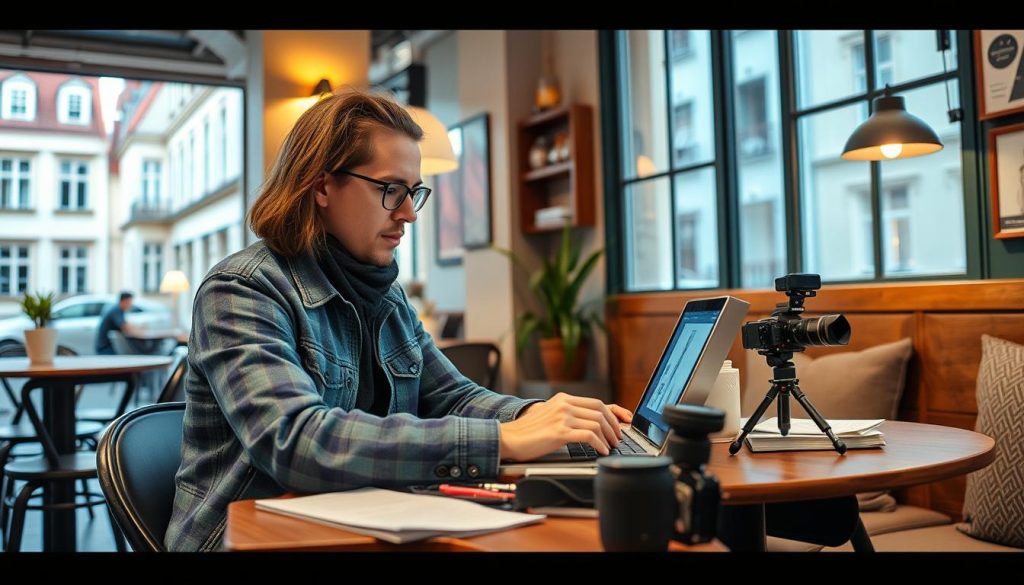
Cultural Content Creation (€1,000-€3,000 startup)
Creating content that authentically represents European cultures, traditions, and perspectives for global brands and publications seeking European authenticity and market relevance.
Best Locations
- Paris, France (cultural capital)
- Rome, Italy (historical context)
- Vienna, Austria (cultural heritage)
- Any location with strong cultural identity
Startup Costs Breakdown
- Professional camera/equipment: €500-€1,500
- Content creation software: €200-€600
- Website and portfolio: €300-€800
- Marketing and networking: €0-€300
European Design Consultancy (€500-€2,000 startup)
Offering design services that incorporate European aesthetic traditions and contemporary trends for clients seeking authentic European design sensibilities.
Best Locations
- Milan, Italy (design leadership)
- Copenhagen, Denmark (Scandinavian design)
- Barcelona, Spain (creative hub)
- Remote (can operate from anywhere)
Startup Costs Breakdown
- Design software and tools: €300-€1,000
- Website and portfolio: €200-€600
- Marketing materials: €0-€300
- Professional memberships: €0-€200
Business Opportunity Comparison
This comparison helps you evaluate which low-cost business opportunities align best with your skills, interests, and resources.
| Business Idea | Startup Costs | Skill Requirements | Scalability Potential | Best Regions |
| Mobile Coffee Bike | Low (€3k-€7k) | Barista skills, customer service | Medium | Northern/Western Europe |
| EU Compliance Consulting | Very Low (€500-€2k) | Legal knowledge, consulting | High | All EU |
| Upcycled Furniture | Low (€1k-€3k) | Craftsmanship, design | Medium | Northern Europe |
| Microlocal Food Tours | Very Low (€500-€2k) | Local knowledge, languages | Medium | Southern Europe |
| Hyperlocal Delivery | Low-Medium (€2k-€5k) | Logistics, tech knowledge | High | Urban centers |
| Language Exchange | Low (€1k-€3k) | Languages, event management | Medium | International cities |
| Artisan Marketplace | Medium (€2k-€5k) | E-commerce, relationship building | Very High | All Europe |
| Natural Cosmetics | Medium (€2k-€5k) | Formulation, compliance | High | France, Italy |
| Cultural Content Creation | Low (€1k-€3k) | Creative skills, cultural knowledge | Medium | Cultural centers |
Practical Tips for European Entrepreneurs
Successfully launching a low-cost business in Europe requires more than just a good idea. These practical tips will help you navigate the European business landscape efficiently.
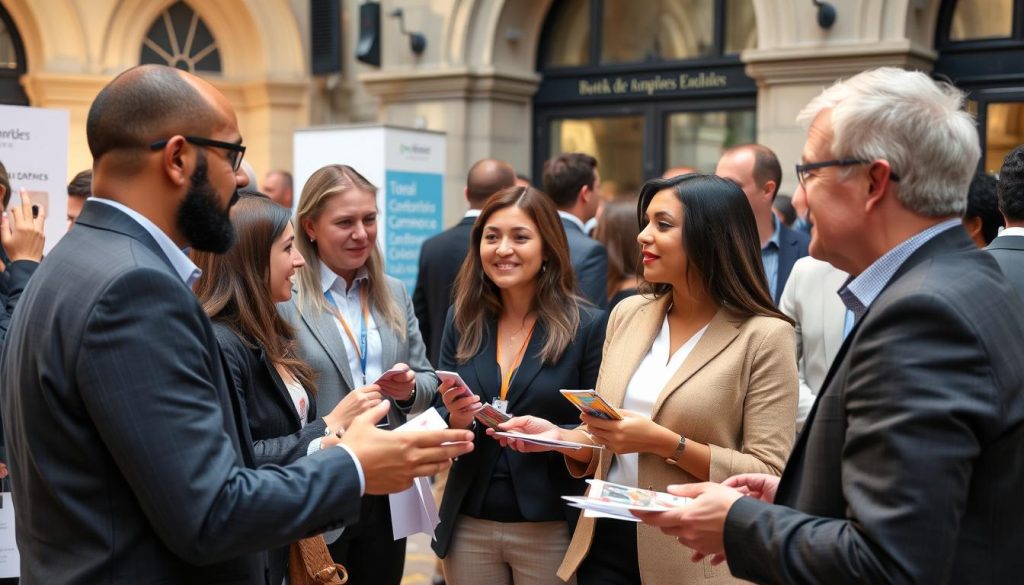
Finding Local Suppliers
- Local Business Associations: Join city or regional business associations that often maintain directories of reliable local suppliers.
- Artisan Markets: Visit local markets to connect directly with producers and craftspeople who may become suppliers or partners.
- Industry-Specific Platforms: Utilize European B2B platforms like Wer Liefert Was (Germany), Europages, or industry-specific marketplaces.
- Co-working Spaces: Many European co-working spaces host supplier showcases and networking events specifically for entrepreneurs.
- Regional Development Agencies: These organizations often maintain databases of local suppliers and can facilitate introductions.
Marketing on Zero Budget
- Local Community Engagement: Participate in community events, markets, and festivals to build visibility without advertising costs.
- Content Collaboration: Partner with complementary businesses to create shared content and cross-promote to each other’s audiences.
- Local Press Relations: Develop relationships with local journalists and bloggers interested in community business stories.
- Micro-Influencer Partnerships: Offer product/service exchanges with small local influencers rather than paying for promotion.
- Hyperlocal SEO: Optimize your online presence for specific neighborhood and city searches to attract local customers.
Legal Requirements for Non-EU Residents
- Entrepreneur Visas: Countries like Estonia, Portugal, and the Netherlands offer specific visas for non-EU entrepreneurs.
- Business Structure Options: Consider structures like the Estonian e-Residency program that allows non-EU citizens to establish EU-based companies remotely.
- Local Partnerships: Partnering with EU residents can simplify legal requirements in many countries.
- Country-Specific Requirements: Research residency requirements, minimum investment thresholds, and job creation expectations that vary by country.
- Professional Assistance: Budget for local legal and accounting support to navigate country-specific regulations.
Success Stories: European Entrepreneurs Who Started with Under €10,000
These real-life examples demonstrate how entrepreneurs have successfully launched businesses across Europe with minimal initial investment.

Maria Kowalska: Urban Herb Farm, Warsaw
Starting with just €6,000 in savings, Maria transformed a small rooftop in Warsaw into an urban herb farm supplying restaurants with fresh, locally grown herbs. By focusing on specialty varieties not widely available, she created a premium product that commanded higher prices.
Key Success Factors:
- Started with just 50m² of growing space before expanding
- Built direct relationships with chefs rather than competing with wholesalers
- Leveraged social media to document the growing process, creating brand value
- Now operates multiple growing locations and employs 5 people
Javier Moreno: Lisbon Language Exchange, Portugal
With an initial investment of €3,500, Javier created a language exchange platform in Lisbon that connected tourists with locals for authentic language practice. What began as simple meetup events evolved into a digital platform and now includes specialized language experiences.
Key Success Factors:
- Started with free venues by partnering with cafés during off-peak hours
- Created a membership model that generated recurring revenue
- Expanded into specialized language experiences for professionals
- Now operates in three Portuguese cities with a digital platform
Sophia Müller: Eco-Packaging Consultant, Berlin
Sophia launched her sustainable packaging consultancy in Berlin with just €2,000, helping small businesses transition to eco-friendly packaging solutions. By combining environmental expertise with practical business advice, she created a niche service with growing demand.
Key Success Factors:
- Started by offering free workshops to build credibility and client base
- Created a network of sustainable suppliers across Europe
- Developed a tiered service model accessible to businesses of all sizes
- Now consults for major brands while maintaining focus on small business support
Conclusion: Your European Business Journey
Europe’s diverse economies, supportive entrepreneurial ecosystems, and rich cultural heritage create fertile ground for low-cost business ventures. The opportunities outlined in this guide demonstrate that meaningful entrepreneurship is accessible without substantial capital investment.
The most successful low-cost businesses in Europe share common characteristics: they leverage the founder’s existing skills, address specific local or regional needs, and utilize digital tools to maximize efficiency and reach. By starting small and focusing on sustainable growth, these ventures can evolve from side hustles into thriving businesses.
Whether you’re a European resident or considering relocating to pursue entrepreneurial opportunities, the continent offers unique advantages for those willing to combine creativity with practical business sense. The key is to start with what you have, where you are, and build incrementally toward your vision.
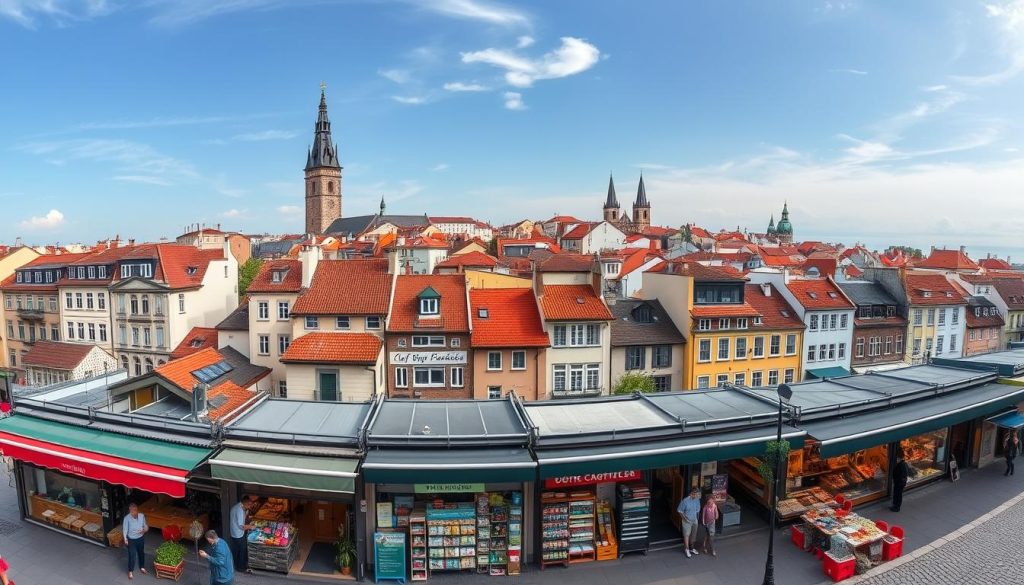
Remember that many of Europe’s most successful businesses started with minimal resources but abundant determination. By focusing on value creation, authentic connections, and sustainable practices, your low-cost business can find its place in Europe’s rich entrepreneurial tapestry.
Get Your Free European Entrepreneur’s Starter Kit
Download our comprehensive guide with detailed business plans, country-specific legal requirements, and cost breakdowns for all 15 business opportunities.
Stay Updated on European Business Opportunities
Join our monthly newsletter for the latest trends, success stories, and new low-cost business ideas across Europe.
Get Country-Specific Business Guides
Access our detailed guides for starting businesses in specific European countries, including legal requirements, funding opportunities, and local resources.
Complete European Entrepreneur’s Resource Bundle
Get all our business guides, legal templates, supplier directories, and marketing resources in one comprehensive package.
Ready to Start Your European Business Journey?
Download our comprehensive European Entrepreneur’s Starter Kit with business plans, legal guides, and resources for all 15 business opportunities.

